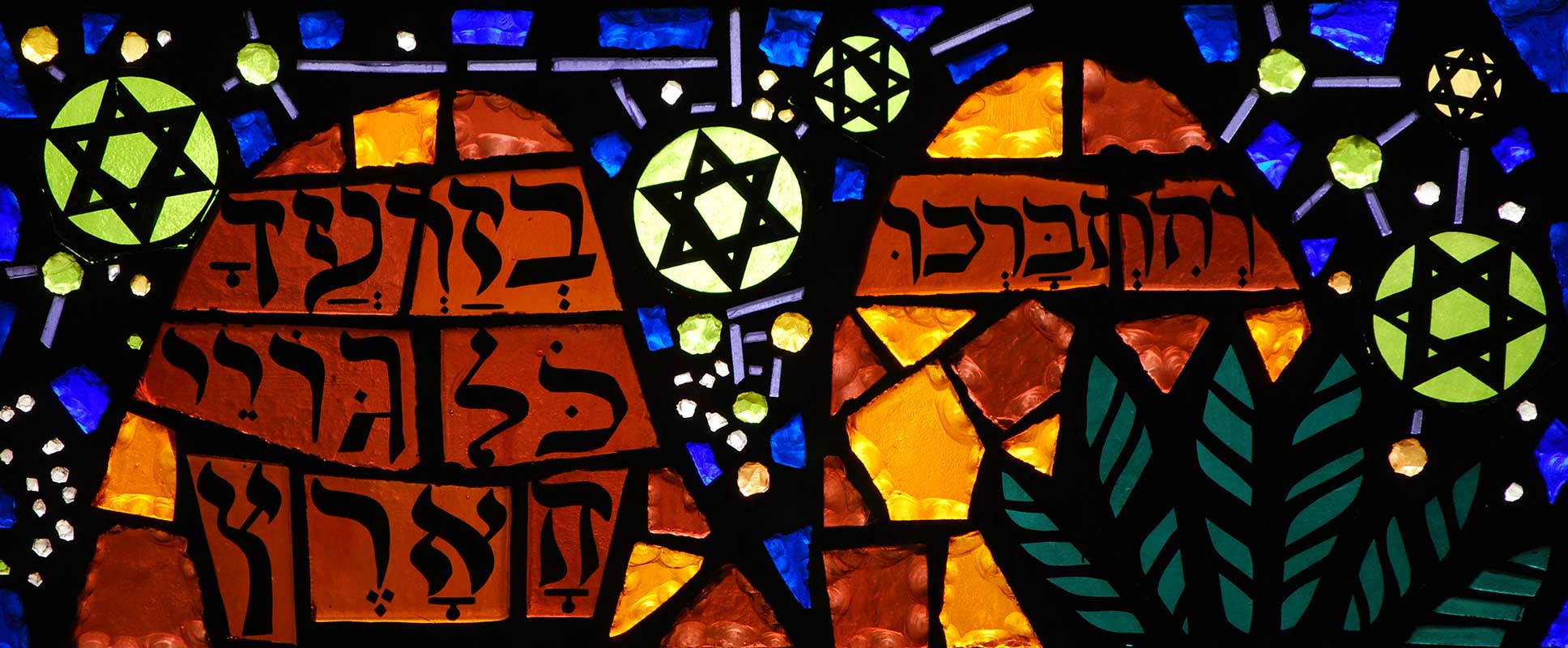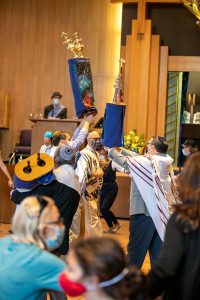
High Holy Days 5785/2024

The High Holy Days are the spiritual highlight of the year. The holidays provide an opportunity to learn more about the Jewish tradition and to share our heritage with newcomers. We invite you to observe the High Holy Day season with us.
We have many programs, services, and celebrations—during the month of Elul, through the Days of Awe, and concluding with Sukkot and Simchat Torah. Some occasions are solemn, some are fun; some are for children, some for adults, and some are for everyone. Use the blue button to see what is coming up in the High Holy Days 2024/5785 holiday season.
The Month of Elul and Selichot
During the month of Elul, September 4 to October 2, 2024, we sound the shofar every day in our daily minyan and have other celebrations, climaxing with our musical Selichot service. The Selichot evening service, in 5785 on September 28, ushers in the beginning of the High Holy Days. We combine the traditional soulful liturgy with accompaniment from classical musicians to open the themes of the holiday. We share dessert on the patio before or after.
Rosh Hashanah
Rosh Hashanah is the Jewish New Year — a time of prayer, self-reflection and t’shuvah. We review our actions during the past year, and we look for ways to improve ourselves, our communities, and our world in the year to come. In 2024, in the diaspora, Rosh Hashanah is observed from sundown on Wednesday, October 2, though sundown on Friday, October 4.
Kol Nidre
Our Kol Nidre services are solemn, majestic, and beautiful, creating a moving and profound beginning to the holiest day of the Jewish year. We ask God to forgive us for promises we make in the coming year that we may not be able to keep. Kol Nidre begins at sundown on Friday, October 11.
Yom Kippur
The Day of Atonement, Yom Kippur, is the holiest day of the Jewish calendar. It marks the end of the 10 days of repentance and is spent in fasting and prayer. Sounding the shofar signals the holiday’s end. Observant Jews do not eat, drink (including water), bathe or wear anything made of leather. Yom Kippur, is observed on Saturday, October 12, concluding at sundown. Worshippers are invited to Break the Fast at the temple at the conclusion of the Yom Kippur evening service.
Sukkot
The week-long harvest festival of Sukkot commemorates the dwelling of the Israelites in tents during their 40-year journey in the Sinai desert. Many families build their own sukkah, in which it is customary to eat meals, sleep and shake the lulav, a palm frond bound together with myrtle and willow branches, and the etrog, a type of citrus. Sukkot 5785 is observed from Wednesday, October 16 to Wednesday, October 23.
Simchat Torah
Simchat Torah marks the end of the annual Torah reading and the beginning of the cycle for the coming year. It is celebrated with singing, dancing, and merry processions of people carrying Torahs and children waving flags. Simchat Torah 5785 is observed from sundown on October 24 to sundown on October 25.
In the diaspora, Simchat Torah is preceded by Shemini Atzeret, in 5785 on October 24, one of four times a year when Yizkor is recited. On Shemini Atzeret, minyan is replaced by a festival service.
